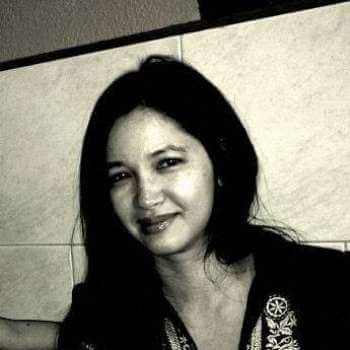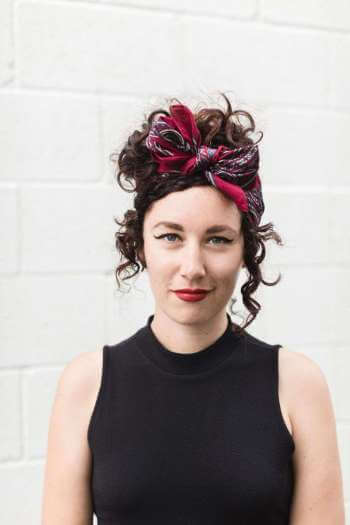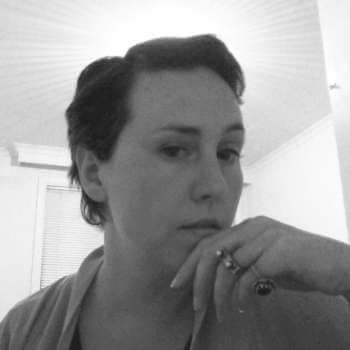Everyone's got an opinion, so what comes next? We dig into the process of how to write a book review.
How to Write a Book Review
Review pages have been a staple of magazines and newspapers since the first time someone wondered, “is it any good?”
Thousands of reviews, in print and online, are published every day and devoured by entertainment-seekers keen to discover and compare the latest and greatest – and also sometimes the worstest – tidbits of media out there.
Reviewing can be a pretty fun gig: you can get brand credit and free junk, and it’s a bit of a power-trip to have others actively interested in your point of view.
Starting out as a reviewer can also be pretty stressful though. It’s normal to be unsure if your opinions are “right” or to worry about whether writing a negative review is going to cause trouble, or just exactly how to go about writing one.
So we’ve corralled a bunch of professional reviewers across the fields of literary and young adult fiction, Australian fiction, non-fiction, blogging and poetry, and cajoled them into passing on tips, tricks and ideas for assembling your critiquing skills. Here’s what they had to say:

Thuy On is the books editor of The Big Issue. She is also a freelance critic, writer and editorial Jill-of-all-trades. She has written for a number of publications including The Australian, The Age, The Sydney Morning Herald, Books+Publishing, Australian Book Review, Overland, Westerly and Australian Short Stories.
What is the point of a book review?
If done well, book reviews are a conduit between author and reader, a filter between gloss and dross, a chance to keep abreast of the latest literary phenomenon when you have no time to read it yourself. It’s a conversation that continues after the last page is turned.
Do you have a different lens through which you read a book, depending on the publication you’re writing for?
Yes, definitely. Not only does it depend on the publication but it depends on the word count required, although I find that many publications have their own style guide and will edit if your language is too flowery/stilted/casual etc. Depending on the publication I will read shallow or deep; sometimes all that’s required is a surface skim, other times you really have to explore further.
What makes a bad (as in badly written) book review?
I try not to insert myself into a review. It’s supposed to be about the book so you won’t see the first person pronoun in any of my reviews. I think badly written reviews are too faithful to plot exposition and not mindful enough of spoilers.
Do ever you feel worried about writing negative reviews?
I used to maybe, when I started out twenty-odd years ago but now, no. I don't do this to garner friends. I think you have to be brave. Essentially you are being paid to voice a considered, professional opinion so there is no point pandering to the masses or lying if you feel the book is underperforming in whatever capacity.
What has been your favourite review that you’ve written?
I don’t know if they are my favourite ones but I am fond of reviews I have written that have gone against every other reviewer’s opinion. For instance, a while back there was a Peter Carey book that everyone in the industry loved and raved about. Except me. I really didn’t care for it at all and said so.

Nadia L King is a short story writer and YA author in Western Australia. Kirkus Review has described her book, Jenna’s Truth which deals with teen cyberbullying as ‘a deeply affecting, valuable story and educational tool. She regularly publishes reviews of Australian writers on her blog here.
You mainly review Australian writing, what do you usually focus on when you do?
Reviewing Australian writing is, for me, about increasing exposure for Australian authors. This year, I’ve been participating in the Australian Women Writers Challenge (#AWW17) - an excellent movement designed to increase awareness for writing by Australian women writers.
When I first started reviewing books a couple of years ago, I used a basic template to make sure I was covering all relevant points in a review. Author Annabel Smith has written a great piece to guide new reviewers which you can read here.
If you’re interested in reviewing books, look around – there are plenty of review sites to choose from. Make sure you use social media to spread the word about your reviews.
Do you ever change your writing style to fit the publication?
I don’t pitch my book reviews to external publications as I primarily post them to my blog and share them widely on social media. I find it particularly gratifying when a publisher uses my phrases to promote a book.
Writing book reviews for my blog rather than a commercial publication affords me a ton of freedom. I have a whole series of interviews entitled Men I Have Loved - these are interviews with characters rather than authors and gives readers a unique view into a story. Obviously, I can also pick and choose what I review and how long each review will be. Writing book reviews for my blog is pure joy and hopefully help builds the writing community in a small way.
Do ever you feel worried about writing negative reviews?
I very rarely write a negative book review. For me, the purpose of book reviews is to excite people about books and reading. If I decide not to review a book I take the book off my Goodreads bookshelf.
What has been your favourite review that you’ve written?
I recently wrote a very short review for Paula Weston’s YA book, The Undercurrent. I was pretty pleased when I saw Text Publishing using my blurb in promotional material for the book!

Image credit: Bri Hammond
Lou Heinrich is a writer and critic whose words have been published in The Weekend Australian, City Mag, and The Lifted Brow. She is one of the recipients of The Wheeler Centre's Hot Desk Fellowships in 2017.
What is the point of a book review in your mind?
A book reviewer's job, firstly, is to tell a story about the story. Your job is to communicate to the reader what they will encounter when they open the book. The next part, my favourite, is to engage with the text. What are the key ideas and themes? What traces of other authors and traditions can you place? How can this be contextualised within contemporary writing, contemporary culture? This, here, is where you get to sift through the guts of the book with bloody hands.
As a feminist writer, what does a review written from a feminist perspective aim to achieve?
I do find a certain amount of glee writing for conservative mainstream publications with a feminist bent. In this context, my hope is to educate readers.
It's also wonderful to have a platform to amplify women's stories and experiences. A friend and I shared a giggle over my review of Lindy West's Shrill that included these words:
She ridicules the tendency to refer to menstruation in mysterious metaphors, describing the process as “once a month hot brown blood just glops and glops out of your private area like a broken Slurpee machine”.
Glorious.
Overall, I just love engaging with ideas. I write from a feminist perspective because to me it is about freedom and justice for all people. And yes, while this points to an inflated sense of my own power, I do wish in my heart of hearts that writing feminist book reviews will create a more just, equal and loving world.
Do you make notes about the book as you read?
Absolutely. It's all about the work you do during reading! Summarising is so much easier when its fresh. I scribble in margins, dog-ear pages, write notes on my iPhone, on spare slips of paper, in notebooks – all for a single text!
If I'm writing for a small word count, like The Big Issue (180w) you only have room to describe the basics, so I won't read as closely. But for a bigger publication, like The Australian (800w), I'll take more notes, and follow thoughts as they spring up. Sometimes I interview writers for The Guardian, and when reading I consider the author's perspective and intentions.
What do you think makes a bad book review?
When the writer doesn't understand the context. When they refuse to attempt to understand the author's intention, especially when it involves experimentation. When they just repeat the plot. When they don't enjoy the genre. Conversely, when the writer is too focused on a book living up to genre conventions. These are all mistakes I have made!
Do you have a set of criteria that you look for in every book you review?
I mostly read female authors because I'm trying to dismantle an education that claims important literature is written predominantly by white men. And because in some way book reviews are evangelistic, and I want other people to read books by women.
But look. Most of my reviews have been about books by white women, so I need to learn from this and make a conscious effort to pitch more reviews about books by people of colour. Because as Ambelin Kwaymullina wrote for The Wheeler Centre, 'We need diverse books because a lack of diversity is a failure of our humanity.' I'm trying to change my ways – in fact, I've got a write up on Jenny Zhang's Sour Heart out soon.
What has been your favourite review that you’ve written?
Thordis Elva's South of Forgiveness (TW with that link – sexual violence). Because I believed in the book's content: a paradigm shift to place the onus of male violence onto men. And I was proud that it had the platform of a national broadsheet.

Anna Forsyth is a writer and freelance editor originally from NZ, now based in Melbourne. In 2012, she created the feminist poetry reading, Girls on Key that is still going strong in Northcote. Her second book of poems, Beatific Toast will be released in late 2017. In her copious spare time, she moonlights as indie musician, Grace Pageant.
As a poetry reviewer what elements does poetry review entail?
For poetry, I aim to find a way in. Trying to piece together the puzzle of the poet's intention is half the fun. It can take longer, but is well worth the effort. I often like to find connections between the poems and look at other references they are using. My advice would be to read much and read as widely as possible in the genre. Really think about what you like and dislike and why. Don't just look at the lines, look at the whole thing and take a step back, then dive in when you are ready.
Literary reviews offer a chance to explore the publication in depth, using critical analysis and they require a sound knowledge of the history of the genre, including theory… when writing these reviews, I always to try to offer reasoned arguments for my critiques, rather than just commenting on what I like or dislike personally. Finding ways to connect with the works if I don't like them or struggle to understand them is one of the challenges, but one of my favourite things about writing reviews.
Do you have a different lens through which you write a review, depending on the publication you’re writing for?
Absolutely. I always keep my potential audience in mind though when writing reviews and recognise the importance to the author and publisher in terms of sales. As a small publisher of poetry myself, I understand how these things can impact on sales and on an emerging writer's career. I take that responsibility very seriously.
I think all audiences want to know the answer to an essential question. That is, "Am I going to connect to this work?" We are so over-saturated with information these days, we need to trust reviewers to guide us when purchasing or spending our time reading something. I try to paint a picture of my experience, but remind readers that it is just my opinion.
What makes a bad review?
A bad review would be where the writer hasn't taken the time to find a way into the work. Often, a lack of knowledge in the area they are reviewing shows. I think you need to at least enjoy the genre you are reviewing and read other works or know the history. That way, you are able to comment with some degree of integrity. That said though, everyone's opinion is valid. There is nothing wrong with someone saying they don't like something. I just prefer to know why when I'm reading reviews.
Do you have a set of criteria that you look for when you are reviewing?
No I don't have set criteria. My approach is to read the whole thing as a reader first, then let it percolate by making comments. Then, I look at the work holistically. I guess I have questions that I use to explore the work on a macro and micro level. For example, what techniques has the writer used? Did they execute them well compared to others writing in that area? What is the cultural and artistic context of the work? What impressions did it give me? Then, if all else fails, I ruminate on individual lines and how I connect to them and why.
Do ever you feel worried about writing negative reviews?
Yes, I do. Particularly in poetry, as I know a lot of the poets and it's a small community. I always tread carefully when criticising and couch these things in a way that puts the work in the best light possible, even if I found it challenging. I think I can still be honest and have found a way to gently express those aspects that I find difficult or disagreeable.

Ashley Kalagian Blunt reviews regularly for the Newtown Review of Books, and has been published by the Sydney Review of Books, Kill Your Darlings, Griffith Review and The Cusp. Her non-fiction work Full of Donkey: Travels in Armenia was shortlisted for the 2017 Kill Your Darlings Unpublished Manuscript Award. FullofDonkey.com
You review primarily non-fiction books, what does a non-fiction review aim to achieve?
The key question is what is the book's purpose, and how does it achieve that purpose (or not). This is also true for fiction, but with non-fiction the purpose is usually more explicit. Non-fiction reviews are also more likely to focus on the book's contribution to the topic area or in other words, why the book matters, though not necessarily. Reviewing books in an area where you have expertise is valuable, because that expertise enables you to engage with the book on a deeper level than a general reader.
What do you look for when reviewing non-fiction?
Actually I don't have any set criteria. I approach each book fresh. I let my reading guide my thinking about what I will or won't prioritise in writing the review. There's so much that could be said about each book. As I read, I ask: what's most interesting and pertinent about this book?
For example, in a review of Patrick Lenton's A Man Made Entirely of Bats, I wrote that if it 'were an alphabet book, its pages would include Antarctica, Bee-Judge, Captain Charisma, decapitation, explosives ...' and went on through the entire alphabet. This was inspired by the book's playful vocabulary. If I started reading with a set of criteria in mind, my focus on addressing that list might limit my open and imaginative engagement with the book.
Do ever you feel worried about writing negative reviews?
A piece of advice I received early on was not to write negative reviews, and I've stuck by that. That doesn't mean each review I write is a glowing endorsement; I always aim to engage critically. But I start by thinking about the book's intended audience and how it addresses that audience, as well as what the book is trying to do, and if and how it accomplishes that. If I decide I can't write a balanced review, I don't write one at all.
What has been your favourite review that you’ve written?
That's a tough choice! I recently reviewed Genocide: A World History for the Sydney Review of Books, which gave me the opportunity to put forth my own thinking in an area I'd studied for years. Writing for SRB was rewarding because the longform essay format provided space to delve deeply into ideas.
itsapanda
Raphaelle Race is a professional writer and editor based in Melbourne. Her fun writing can be seen in Overland, Junkee, The Big Issue, Kill Your Darlings, Phantasmagoria and Feminartsy, among others. Like many others, she is writing a book.

